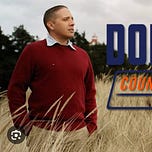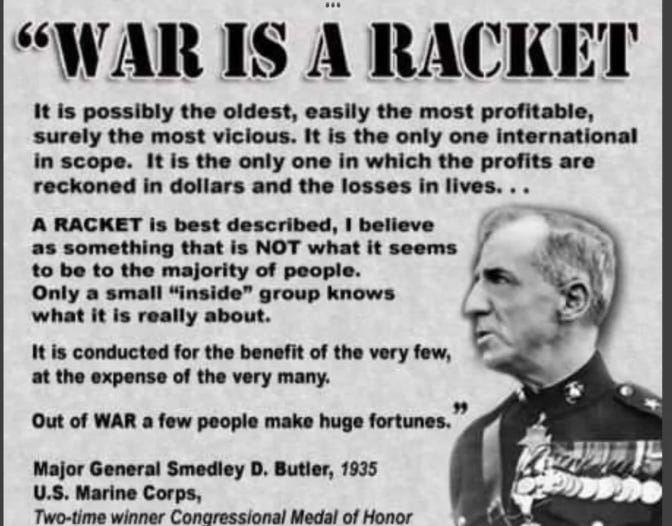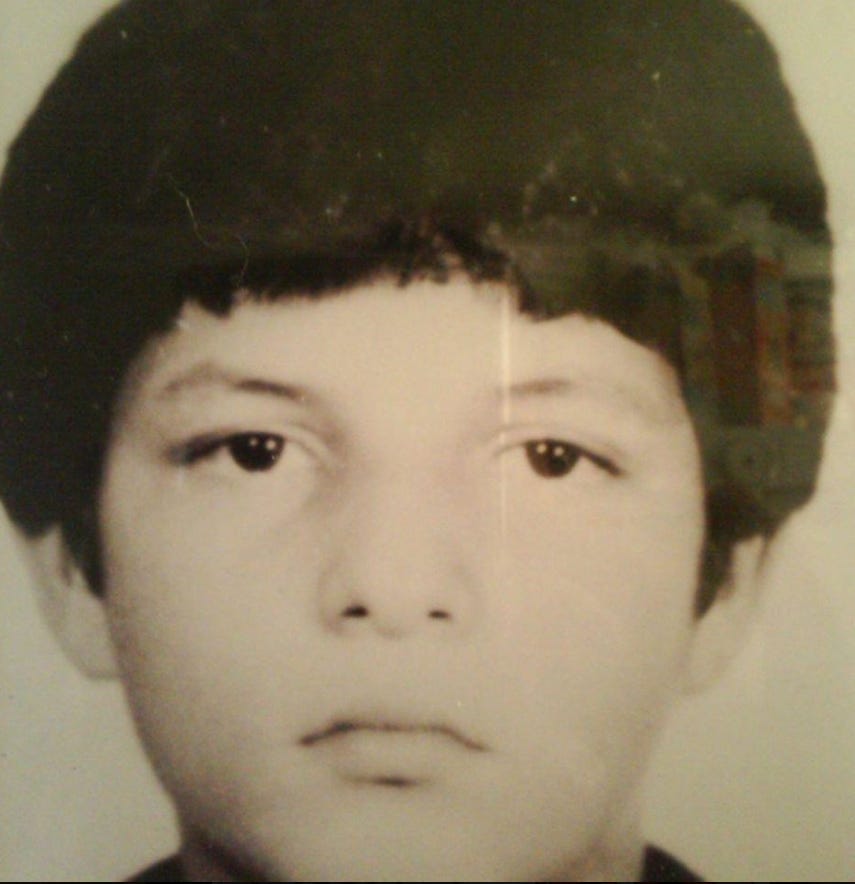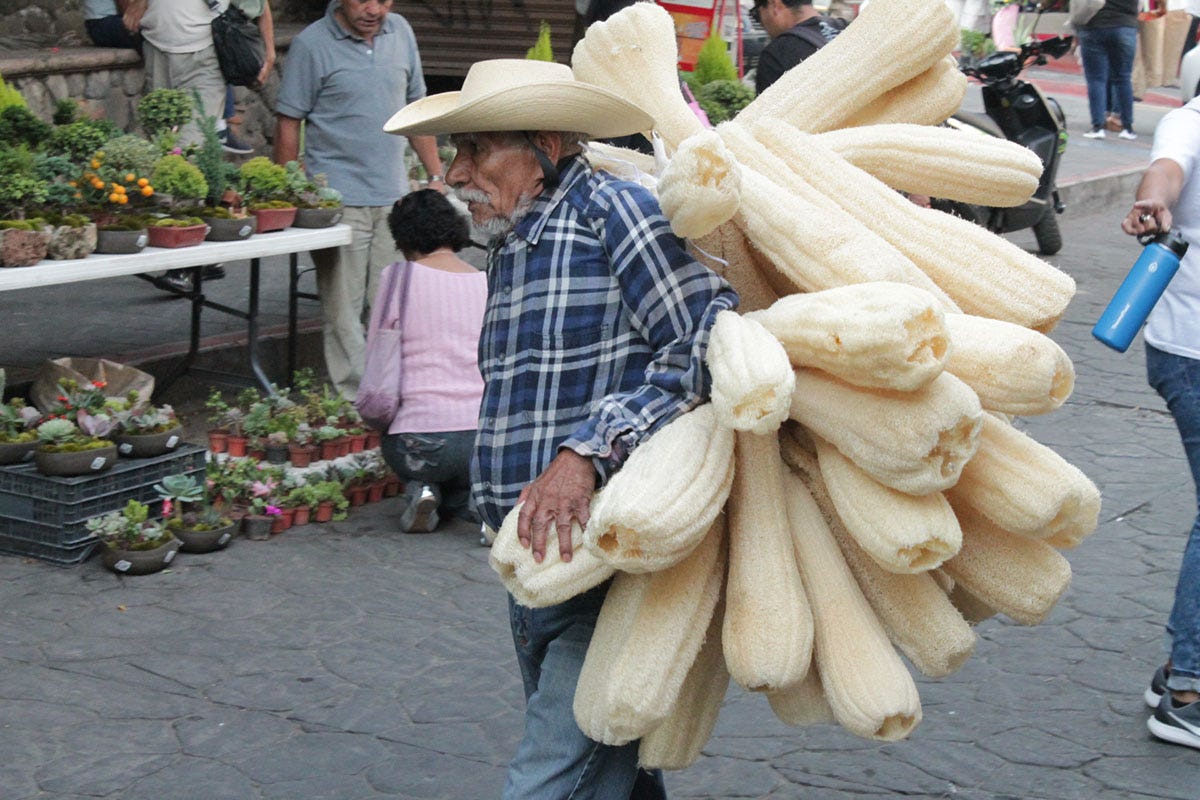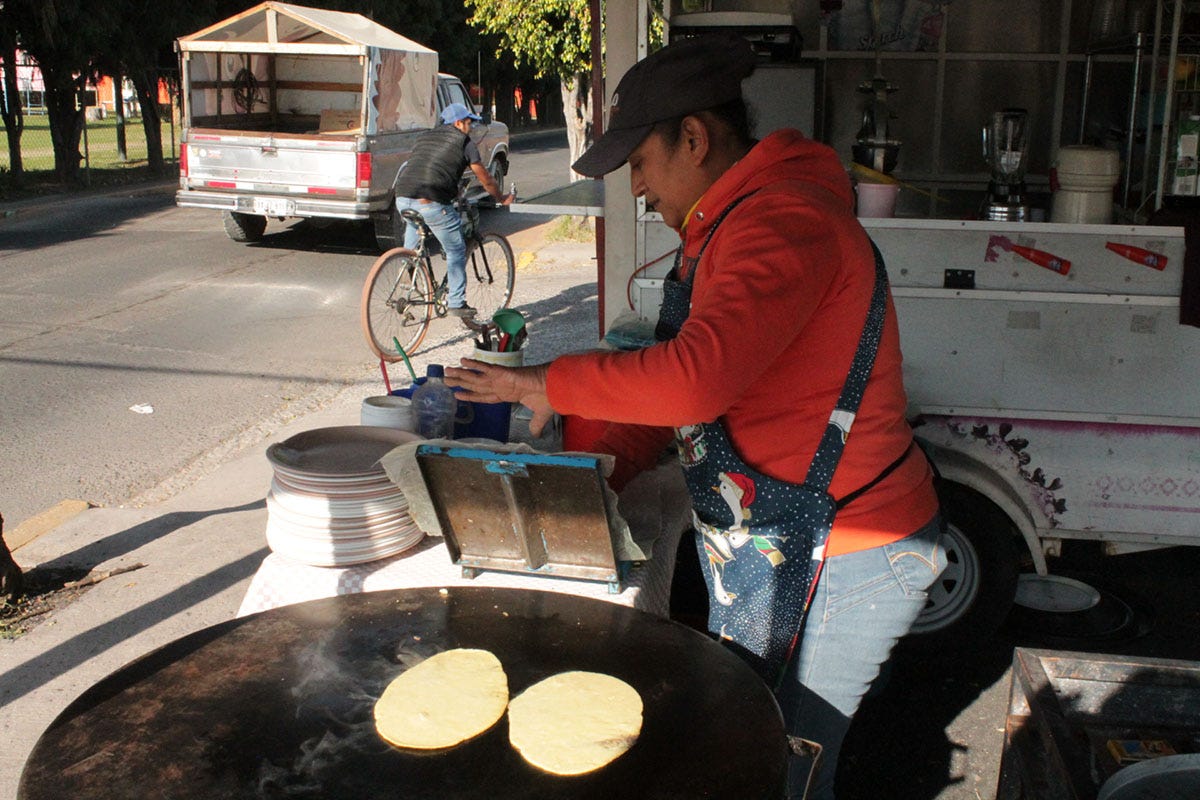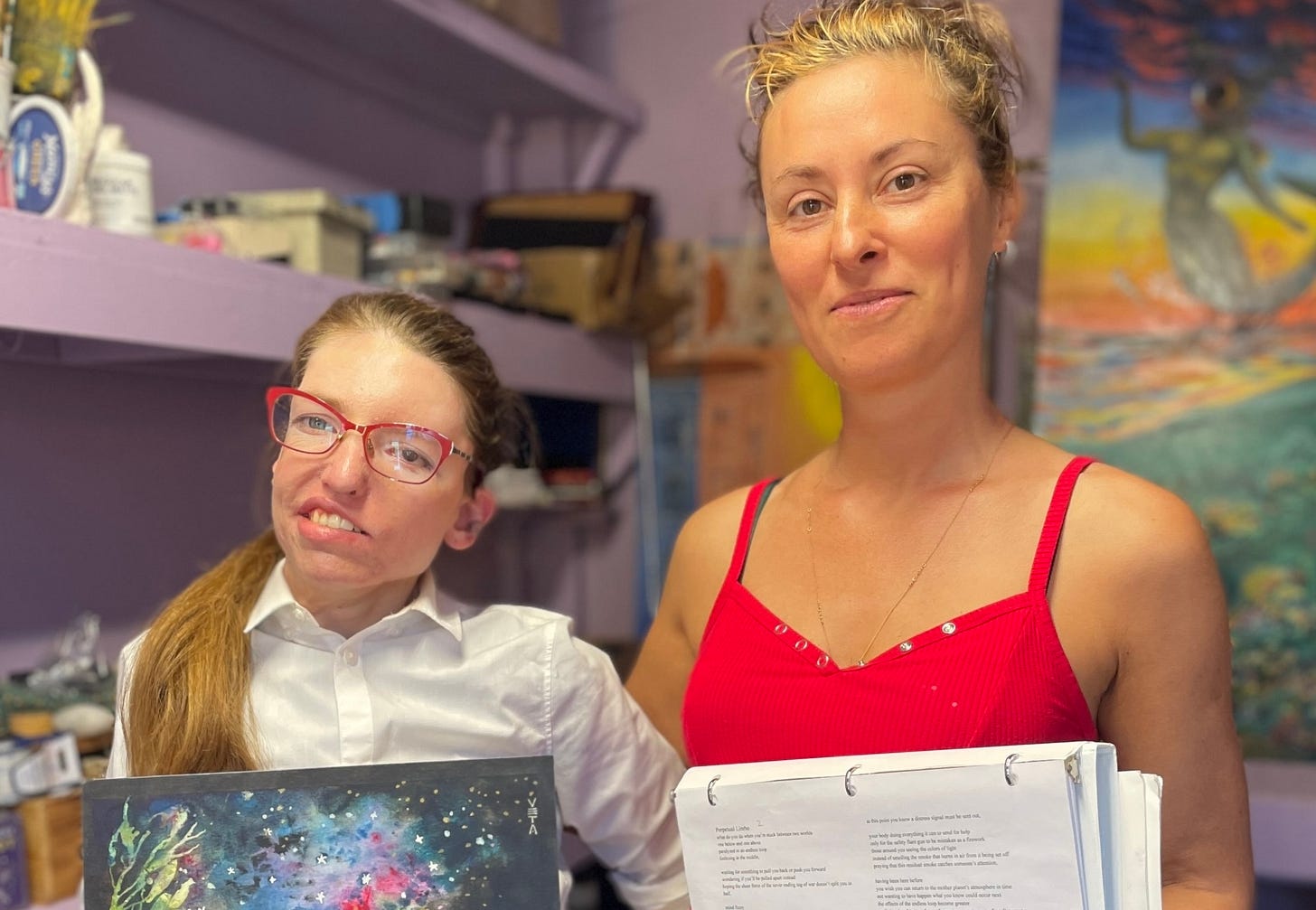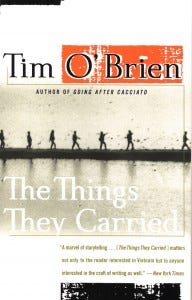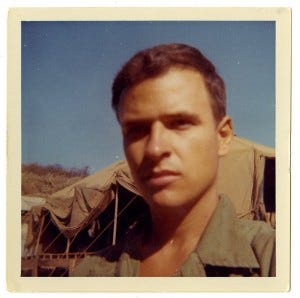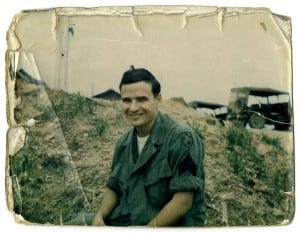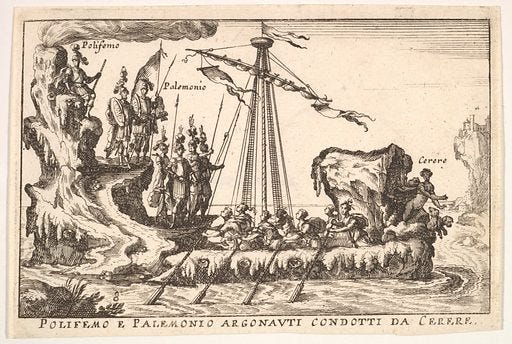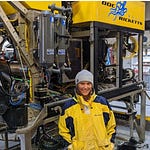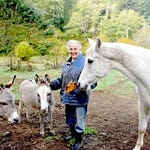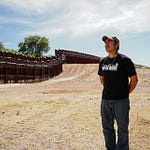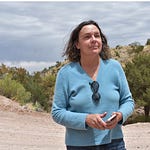From California to Iraq and Falluja to Antigua, to local politics and now the wounded warrior runs a small publishing house on the Oregon Coast, highlighting BIPOC, LGBTQA+ and veteran writers.
Don Gomez was a kid in California, traveled many places, his old man, an upholsterer, he had to adapt to new schools, new kids, new bullies, new forms of racism, and while his lineage is Colorado Spanish, back two hundred years, the majority of racist Californians saw him as spic.
This interview courses over his life, and he’s an important anchor here, now, in Oregon, on the Coast of all places shepherding writers to be all they can be. He is in the process of exorcising demons over there, in that hell hole of American War is a Racket.
Addiction ran in his family, and he had his juvenile offending “lifestyle,” but listen to the interview and how he is on a mission, former Marine and all.
My man from North Arkansas AKA Wisconsin, Toothless in Wisconsin, Kelly Kloss, one of those minorities I am sure Strerncastle would publish since Kellly went from boy to raped kiddo to drunk to all sorts of iterations, on the run from the “law,” and years in jails and prisons and now, still on paper, man, still on paper. His memoir would be explosive and remarkable and Oprah or Leibowitz or Colbert or whomever, they would have fucking made some waves having these interviews on their fucking shows.
“Give me your tired, your poor, your huddled masses yearning to breathe free, the wretched refuse of your teeming shore. Send these, the homeless, tempest-tossed, to me: I lift my lamp beside the golden door.”
— Emma Lazarus, "The New Colossus”
“Citizenship to me is more than a piece of paper. Citizenship is also about character. I am an American. We’re just waiting for our country to recognize it.”
— Jose Antonio Vargas
Don talked about veteran writing workshops in San Diego, and he talked about dudes he knew who were not US citizens, but were military vets, rounded up and deported, man.
Even back to the Korean “war,” dudes would write their stories, their remembrances, memoirs, what have you, and it was as if many weights were lifted off their backs and hearts.
“They actually looked different after going through the writing workshop.”
Alienation. Brown in a White Man’s Stolen Land.
I’m writing this because my buddy called right after the interview of Don aired on KYAQ 91.7 FM, kyaq.org.
He said it was my best interview he’s heard so far on my Oregon Coast show, Finding Fringe. Who would have thought?
Kelly called, talked to my wife Lisa, we had laughs, and he didn’t realize Lisa is Latina, or Hispanic in that weird descriptor.
In fact, here is one of Lisa’s worker friends, from Lisa’s old days doing the day and night labor staffing: From a short-lived gig with a Portland paper, called, my column that is, Finding Fringe!
Iglesia de Colima in Colima, Mexico. Enrique's father was a migrant worker, who worked in the United States on farms. He'd return to Colima a few months a year, where his wife, Enrique's mom, raised 10 kids. (Photo by Paul Haeder)
Opinion | An American story of working undocumented
FINDING FRINGE | One person’s refugee status is another’s loyalty to employers, state and country
by Paul K. Haeder | 27 Jun 2020
“Give me your tired, your poor, your huddled masses yearning to breathe free, the wretched refuse of your teeming shore. Send these, the homeless, tempest-tossed, to me: I lift my lamp beside the golden door.”
— Emma Lazarus, "The New Colossus”
“Citizenship to me is more than a piece of paper. Citizenship is also about character. I am an American. We’re just waiting for our country to recognize it.”
— Jose Antonio Vargas
Forget the rhetoric from the Obama Camp (“Deporter in Chief”) or the Trump Klan (“All Mexicans are Rapists and Murderers”). Go all the way back through this country’s history — and we find every treaty with Indigenous peoples broken and every piece of ancestral holy land defiled by the nation’s first “illegal aliens.”
A periodic column profiling unconventional Oregonians who push the boundaries of social order.Better yet, to counter those misanthropic and racist lines, how about, “We are all illegal aliens.”
It was a bumper sticker created by a group I was working with, Annunciation House, and an offshoot, Solidarity with the Americas.
That was El Paso, 1980, under another racist president, Ronald Reagan, and his team of war mongers — supporting, training and outfitting death squads throughout Central and South America.
There are so many pivotal moments in this country’s racist history, and now amidst lockdown, massive forced unemployment and frayed safety nets, people of color remain the people on the lower rungs of society.
Even so, those from Mexico and Central America are farther down the North American proverbial pecking order. However, without Latinx workers — as well as those from Asian countries and coming from the African continent — the U.S. in many ways would come to a halt.
“We are all illegal aliens!” bumper stickers were an act of collective solidary against deportations and denied political asylum. As well as recognition of the original peoples of Turtle Island (a name Algonquian- and Iroquoian-speaking peoples use for North America) who never gave anyone papers to come to this continent.
Narrative frames
This is a story about me, which is a story about America, which morphs into a preamble for a universal tale many Oregonians face. It’s also a record of one man’s odyssey — who is under the radar, working in the informal economy, performing under-the-table jobs and yet other times working under legal pretenses, albeit with counterfeit documents.
I’ll call him Enrique because using his real name will get him into trouble. I met him through a very good friend, who once worked at a staffing agency where she hired this fellow and so many other reliable, hard-working men and women who also were undocumented.
She asked to be called Monica. What she’s seen in the staffing arena for 20 years is many variations on a theme with people trying to make ends meet.
“I’ve seen some incredible fake documents. There are a few artists in Portland who can replicate Social Security cards and immigration IDs. In many jobs, I have helped hard workers get jobs without having to be not only humiliated, but denied work and reported to immigration.”
This photo of Enrique was taken when he was a child still living in Colima, Mexico.Enrique is a 50-year-old born in the Mexican state of Colima but was raised in nearby Michoacán. He crossed the borderline more than 32 years ago.
In the 1980s, I was a reporter for the El Paso Herald-Post, and part of one six-month period I crisscrossed Mexico, hitting all 32 of Mexico’s official states and the Districto Federal while reporting on tourism, trade, culture and other aspects as a foil against the blanket warnings by then U.S. Ambassador to Mexico, John Gavin, that most of Mexico was a dangerous place.
I love Colima and Michoacán. I have known many “Enrique’s” in my life in Mexico and as a journalist and teacher in El Paso, Texas and Las Cruces, N.M.
After Enrique wound through Mexico and crossed the Rio Grande, he ended up briefly in Seattle, where his uncle, a police officer, wasn’t much help. He soon after set roots in Gresham.
He loves Gresham and considers himself an Oregonian. He’s been a forklift operator for more than 15 years, working for several logistics and warehousing companies in Portland.
In two months as the pandemic took hold, things changed dramatically and dangerously. Especially for our undocumented brothers and sisters.
Desperate times call for desperate measures?
Enrique has been couch-surfing and garage-squatting for five years in friends’ and families’ abodes. He woke up one day a few months ago, ready to take off for an early shift. But, his Mazda B2600 truck had been stolen.
“I put in a new engine in that truck. I have owned it for 28 years. I did all the work on it,” he said, with tears welling up. He is proud of this vehicle.
For Enrique, the Mazda was a lifeline, shuttling him to and from warehouse forklifting jobs. He used it on weekends for landscaping gigs, for fruit picking in Yakima and Hood River and for hauling produce back to Gresham to sell.
He called up my friend Monica, and he was frantic. Nothing like this has ever happened to him. He has auto insurance, but has been driving with an expired license for three years. He told us that every day, every time he parks the truck, he checks tire pressure, all the lights, anything that might give a police officer an excuse to stop him.
Having that truck ripped off meant he had to report the incident to Gresham police.
He ended up getting the truck back. A few things were ripped off, but he got it back in running shape.
Things spiraled down from there, once he got back to the Gresham warehouse where he had worked three years as a forklift driver. The manager told Enrique his job had been eliminated because of COVID-19 work reduction. It turns out, however, the job was actually made available for the manager’s brother-in-law.
A quick note on my omissions: Monica said disclosing her real name, the staffing company’s name and the name of the warehouse where Enrique worked in this article would not be a problem for her. “But,” she said, “I am concerned that if ICE read the story, saw my name, saw the staffing company’s name, saw the name of the warehouse where we had a staffing contract with, then all bets would be off for undocumented workers and their families. I believe ICE would do a forced audit of both the staffing company and the warehouse.”
Enrique’s case is not a rare undocumented story for Oregon.
I talked with Ana Maria Mejia, from Madras, whose husband, Moisés, was deported this January after being in the country since 2005. Ana and Moisés are raising four children. Ana is Mexican-American, U.S. born. She’s got a college class load in early childhood development, and her Head Start gig has moved remotely to her small trailer in Madras.
She chats daily with her husband who is staying with his mother in El Salvador. He is keeping his head down because gangs there are going after everyone, even strait-laced guys like Moisés.
I reached out to Ana to ask about resources I could relay to Enrique — an immigration lawyer, other employment opportunities. Ana knows the routine with ICE. She and Moisés have spent thousands of dollars trying to get legal status for Moisés.
Even though Ana doesn’t know Enrique, she said that in Madras, several farms are hiring and have some accommodations for housing. Cabbage, lettuce and other crops still need tending and harvested.
She said she’d give Enrique names of people to call.
Photo by Paul Haeder from his travels in Mexico
‘We all are illegal aliens!’
Enrique has a Social Security card from an uncle who has since returned to Mexico. Enrique has never spent a day in his life without work. He has gotten jobs with false documents. He’s even had a legal Oregon driver’s license.
That uncle has since passed away in Mexico.
Enrique applied for other jobs. One was as a forklift driver at UPS. He said he was never asked whether he was OK with a pre-employment background check. But the company ran one before ever interviewing him anyway.
What UPS found was the date of birth he gave them did not match the date of birth for the Social Security card he had.
It was an old card for a deceased uncle.
Enrique didn’t know about the background check until he attempted to get another gig through the same staffing company, which had connected him with jobs for 17 years. The agency told him it was shutting him out based on information about his documents UPS had shared with it when it ran an unauthorized background check.
I’ve sought legal opinions on Enrique’s circumstance, and from people I have talked with, it would appear this is both an unethical and illegal decision.
One of those people, lawyer Micah Fargey out of Beaverton, said Enrique had little chance of getting any recourse from this labor issue. He said, “Enrique should just move on.” He said opening an Oregon Bureau of Labor and Industries complaint might be one avenue, but Fargey has worked on clients’ BOLI complaints in the past with no positive result.
Monica told me that if she had still been working at the staffing agency, she would have gone directly to corporate offices and petitioned directly with the human resources department. She told me she had done that many times, putting undocumented people back on the payroll.
Enrique never gave UPS permission to release results of a background check to any person or any company.
Now he needs a labor attorney to get him reinstated into the staffing agency. Maybe it’s a $200 six-line letter from a lawyer explaining the illegality of using another company’s background check as grounds for not hiring.
Enrique has now contacted two attorneys with the help of his former boss, Monica. An attorney with Bailey Immigration law office in Portland indicated Enrique’s is likely a case of both “targeting” a Mexican worker and of an unauthorized background check.
This is an economic thing, stupid!
Let’s look at Enrique’s case through the lens of how much he is being ripped off as a taxpayer:
At $15 an hour, working 40-plus hours a week at this one logistics warehouse, he made more than $90,000 over a three-year period. That was taxed. unemployment insurance was taken out, as well as Social Security taxes.
Enrique never files for refunds because he doesn’t have a Social Security card matching his name. He wants to stay under the radar.
He’s been in this country a long time, so for example, just looking at 15 years working as a forklift driver, we can think about the raw numbers: He’s made upwards of $450,000. No tax refunds from the IRS, no “kicker refunds” from Oregon.
He’s never received food stamps, and he has no children in his household, so no free schooling, no temporary assistance for families in need.
What he did receive from capitalism were 12- and 14-hour days moving boxes, crates and materials for multibillion-dollar companies, at unsustainable wages.
Photo by Paul Haeder
A preamble to others
When I worked in El Paso, Texas, and Las Cruses, N.M., with several programs assisting children of migrant agricultural workers, I worked with students in K-12 and those in my community college classes. They, too, have to follow the crops along with their parents and guardians.
Our job was to make sure their coursework articulated from one community college to the next.
That was in the 1980s and 1990s. Many recriminations came crashing in on me as a writer, journalist and teacher: “How can we have all these programs for these illegals?” “How can you justify all this support for these kids whose parents broke the law and crossed in the U.S.?” And, “Why are you helping them and not us?”
I find these questions easy to answer. Just go down the aisles of a grocery store — look at the produce picked and packaged by undocumented immigrants. Know that the meat and poultry these naysayers’ families gobble up, and all those packaged goods, are butchered and packaged in many cases by so-called “illegals.”
In El Paso, I was a journalist, faculty member and activist. By night, I helped several groups with my specially outfitted Datsun pickup bring people from Juarez to El Paso to several way stations, or so-called safe houses.
If my editors had found out about this, or even my so-called liberal English department chairs, the proverbial pink slip would have been dropped onto me instantly.
Enrique’s story is an American story. In these fascist times, in these times of complete government failure, and under the dark cloud of Gestapo-like policing, every single move an undocumented human being makes has to be strategic, stealth and under the radar.
One man’s tribulations are another woman’s PTSD
Monica met Enrique in 2006, when she took over the on-site manager position at a large printing company in Portland. Enrique and 20 others were core employees there who not only were amazing workers, but who helped Monica get the business operations under her belt.
Just a few months before this new gig at the printer, Monica recalls, tears flowing, her first staffing gig at the Fresh Del Monte Produce food processing plant in Portland. It was the day after ICE went in through the ceilings and took away more than 160 workers. They were driven off in blue ICE vans.
Many were from Mexico. “The agents crashed into the offices, and basically it looked like a war zone when I showed up the next day. That was my first day on the job,” she said.
Toil, wet limbs, cold working conditions — that’s our fruit and vegetable cutting trade. Monica said that all the personal protective equipment like aprons, rubberized long sleeves and gloves ended up destroyed or went missing.
“The manager, who drove a Porsche Cayenne to work, basically vanished a few days after the ICE raid. I was left to my own devices. I had to cut out the head and arms of large Glad bags for them. It was humiliating.”
While she attempted to find 80 temporary workers for the three shifts at the Fresh Del Monte plant, every day mothers, children, husbands and wives of the workers who were carted off showed up wanting to know of their loved ones’ whereabouts and well-being.
“Not one of the people that were taken by ICE — and some had papers but not on them at work — came back to work at Del Monte,” she said.
While talking about Enrique, Monica recalls her own Mexican roots, though she jokingly states she’s pale-skinned and speaks no Spanish.
“I feel as if I have a duty to my people. The saddest part of that Del Monte episode was a couple, Paula and Cero; older, but good workers. The trash bag I had to use for protective apron went to Paula’s feet. Both of them just smiled and thanked me.”
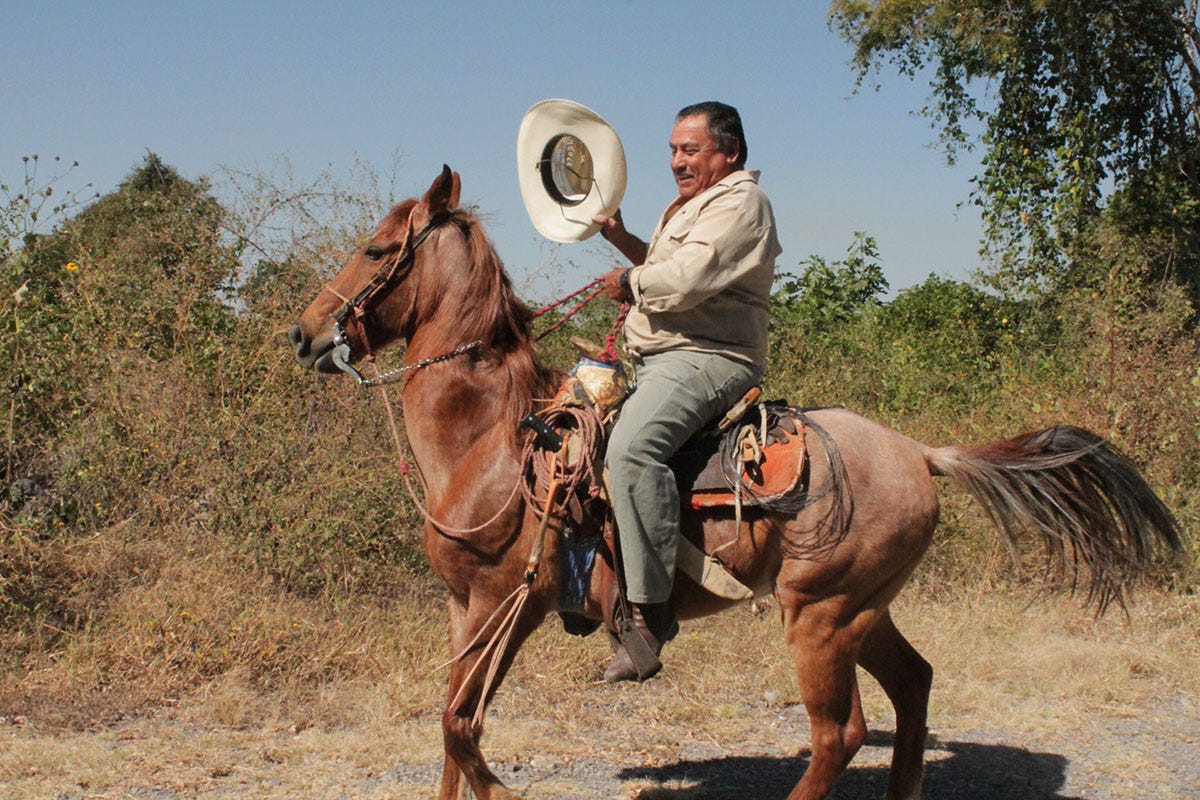
Photo by Paul Haeder
We all are illegal aliens
Accordingly, Monica got her company to end the contract with Del Monte. She recalls how she placed Paula and Cero into another food-production outfit, United Salad Co.
Monica’s eyes tear up again. “Here I thought I put them somewhere safe. Both were doing well. Both were full-time employees. One day we got a call from the HR over there. Something had happened. “
Paula spoke no English, and Cero very little. But they loved working at United Salad, even the demanding, cold food production area.
It turned out that where the time card machine had been placed, there was blind spot, and one day while clocking out, Paula was hit head-on by a forklift. She ended flat on her back, head to concrete. She never spoke after that, and she passed away three months later in a care facility.
She had no broken bones, but the brain injury was enough to end her life. “Cero went to Mexico with Paula to bury her. Cero never came back to the United States.”
Printing companies, restaurants, construction sites, packaging, manufacturing, food handling operations, meat factories and any other places where one might read in the news about large groups of workers not only exposed to coronavirus, but infected with COVID-19, are worksites where guys like Enrique and couples like Cero and Paula make a living.
Enrique is 50, and he is a hard worker. For years he had rented an apartment in his own name. He never had to live in a tent or his truck for long periods of time. For five years he’s been renting rooms from family, and other times he is couch surfing.
He has several brothers and sisters in Washington and Idaho. Many in his family also are undocumented, but most have better forms of ID to make it through the system. Having a spouse and children helps stave off depression and loneliness.
Enrique is depressed about his situation.
He described to us better days: He used to DJ at parties and weddings. He loves landscaping. He learned how to fish in Oregon.
Enrique began working a new job recently, for a parts distribution warehouse. He had to miss a day of his new job in order to testify against the person who stole his truck. He needed that income, plus it’s a new position, and many times these companies frown on taking days off, even for court. Luckily he could appear via webinar, which meant he no longer had to worry about exposing himself to ICE by going to court.
The wall is the closing of the American mind, heart
I used to teach in my writing classes in Texas “Aliens and Citizens: The Case for Open Borders,” a Joseph Carens article utilizing a moral case for open borders.
In any case, the reality is we have Guatemalans in Lincoln County, where I reside, who are so disenfranchised that they need help getting basics like rice, beans and masa. Many speak Indigenous languages, and many are so afraid of any bureaucracy they never seek help. Some have children in the Lincoln County school system.
The reality is Enrique has no rights in the country — in the state — where he has set down roots, has been law-abiding and has contributed to both his community and the companies that have exploited his labor.
If we believe “we all are illegal aliens,” then we might understand how now our government and both major political parties treat us as “less than” human and in fact disenfranchise us no matter our legal status. We are seeing huge bailouts for large corporations. We see huge profits gobbled up by Jeff Bezos and other billionaires.
Yet, the people I work with in the nonprofit program I am running in Lincoln and Jefferson counties are poor, are in a paranoid state, have lost jobs on the coast — many are cooks, in hospitality and work in retail.
Most are American born, but in many ways, they, too, are treated as suspect, just as those who are Mexican and without papers. Many have no ability to get driver’s licenses, and many have no way to get housing because of past evictions. Many have unresolved fines and debts.
“We are all illegal aliens” in the eyes of the rich and the patriarchs.
+—+
Don and his things he carries. Below, Veta and Ms. Yount, who will be on my August 27 show:
+—+
June 20, 2017,
Filed Under: Books + Manuscripts, Research + Teaching
The textual “truth” behind Tim O’Brien’s The Things They Carried
Tim O’Brien’s The Things They Carried is a ground-breaking meditation on war, memory, imagination, and the redemptive power of storytelling. The book depicts the men of Alpha Company: Jimmy Cross, Henry Dobbins, Rat Kiley, Mitchell Sanders, Norman Bowker, Kiowa, and the character Tim O’Brien, who survived his tour in Vietnam to become a father and writer. The Harry Ransom Center holds the author’s archive.
Two of the most poignant stories in The Things They Carried are “On the Rainy River” and “Field Trip.” “Rainy River” portrays a young O’Brien, weeks removed from his college graduation, leaving his home in Worthington, Minnesota, for a fishing outpost on the Canadian border, agonizing over whether to report for Army induction or to live as a draft dodger. In “Field Trip,” O’Brien returns to Vietnam many years after his tour of duty as a foot soldier and radio operator, now with his ten-year-old daughter, Kathleen, as he seeks some measure of peace from the traumatic memories of a close comrade’s death. Because these stories are removed from the daily realities of the war, they tend to be more accessible to O’Brien’s audience. But in the original version of Things, readers would have turned the page to discover that neither of these stories is “true.”
Throughout The Things They Carried, O’Brien famously distinguishes between “happening-truth,” or an accurate and verifiable account of historical events, and “story truth,” or readers’ genuine experience of the story, even if the details are invented. The book blurs the lines between fiction and truth even further in its dedication to a group of soldiers who turn out to be fictional characters throughout the rest of the book, and in the appearance of “Tim O’Brien” in several stories, a figure who seems very similar to, but not quite identical with, the author. Many readers, and most of my students over many years of teaching the book, take the circumstances of “Rainy River” and “Field Trip” to be at least more or less true (in the conventional sense): they assume that O’Brien made some sort of trip away from his family while deciding whether to honor his draft notice, even if not precisely the one portrayed here, and that O’Brien and his daughter went back to Vietnam years after the war, even if, again, the “real” version of that event differs from its fictional representation. (That is, they take these stories to be relatively conventional instances of fiction based on episodes from the author’s life, even if contained within a much more complex metafictional narrative.)
In fact, while O’Brien did agonize about serving in a war he vehemently opposed, he never made any trip like the one in “Rainy River;” his worries played out entirely in Worthington. And, while O’Brien did return to Vietnam in 1994, accompanied by his then girlfriend—this trip is the subject of his well-known piece for The New York Times Magazine, “The Vietnam in Me”—his daughter did not go with him, because he had no children. In the typescript for the book that O’Brien sent to Houghton Mifflin, the chapter titled “Good Form,” which discusses O’Brien’s interactions with the (ostensibly real) veteran Norman Bowker, also included a long passage disavowing any happening-truth in “Rainy River” or “Field Trip,” or in various other events in the book, such as O’Brien’s empathetic imagination of the Vietnamese life he has ended by shooting an enemy soldier on patrol, or a postwar visit from his former company commander, Jimmy Cross. Here is a portion of that early version (I have retained the cross-throughs as they appear in the copy at the Harry Ransom Center):
I don’t have a daughter named Kathleen. I don’t have a daughter. I don’t have children.
To my knowledge, at least, I never killed anyone.
Jimmy Cross never visited me at my house in Massachusetts, because of course Jimmy Cross does not exist in the world of objects, and never did. He’s purely invented, like Martha, and like Kiowa or Mitchell Sanders and all the others.
I never ran way to the Rainy River. I wanted to—badly—but I didn’t.
I came across this typescript during a month-long fellowship at the Ransom Center, poring through as many of O’Brien’s papers as I could, and have written about it more extensively in How to Revise a True War Story: Tim O’Brien’s Process of Textual Production (University of Iowa Press, 2017). Ever since my first encounter with this aspect of O’Brien’s papers, I have been fascinated by the question of how readers would interact differently with the book if passages like this one (and another deleted chapter, “The Real Mary Anne,” which takes the opposite tack of insisting that the heroine of “Sweetheart of the Song Tra Bong” was, against the odds, an actual person) had been retained. Or, to put that counterfactual question another way: how might O’Brien’s real readers have responded to the version(s) of The Things They Carried that could have been published, but weren’t? We can start to think through those questions by looking back further than the typescript, to the magazine versions of several chapters that appeared before the book.
O’Brien’s Magazine Readers
While the relationship between fiction and truth is questioned elsewhere in The Things They Carried for readers to at least reasonably doubt the veracity of stories like “Rainy River” and “Field Trip,” some of O’Brien’s original readers would have had no such contextual cues, as they found these stories in magazines. “Rainy River” appeared first in two periodicals: Macalester Today, O’Brien’s college alumni magazine, and Playboy, which paid $5,000, the largest magazine check of O’Brien’s career to that point. Macalester Today heightens the sense of autobiographical reality with its subheading, “A writer remembers the summer of 1968, when he found himself in desperate trouble. A month after graduating from Macalester, he was drafted to serve in Vietnam.” But O’Brien’s own introduction to the story immediately undercuts this impression, as he explains his choice to use a character who shares his name but is otherwise “almost entirely invented”: “Personally, I can’t see that it matters in the least—what counts is the artifact, the work itself—but nonetheless, with this book in particular, people seem interested in knowing what’s ‘real’ and what isn’t. As with all fiction, the answer is simple: if you believe it, it’s real; if you don’t, it isn’t.” O’Brien here deftly sidesteps the question of what’s “real,” at least as most of his readers would understand it, or why they might be especially concerned about such issues with this book, for an answer that bleeds into his more developed sense of “story truth” in the book. But given the context of an alumni magazine, we might easily assume readers who are at least relatively predisposed to take the events in “Rainy River” as closer to “real” than they are, based not only on the question of whether they “believe it,” but also on the types of stories one expects to find in this venue.
“Field Trip” appeared in the August 1990 issue of McCall’s, part of the magazine’s “Summer Fiction Special,” with a readership presumably attuned to the father-daughter relationship as much as the memories of wartime trauma. Indeed, the pull quote on the story’s first page highlights O’Brien’s supposed daughter as if she were the story’s central consciousness: “Kathleen was only ten, but her father wanted her to understand Vietnam, the place where he’d lost so much, and to witness what it was he’d find there.” McCall’s readers, had they encountered a version of the book with the passage above from “Good Form” intact, might have been especially surprised, even dismayed, to discover Kathleen’s fictionality. Of course, that’s often the point in The Things They Carried, as in the famous ending of “How to Tell a True War Story,” when the reader learns that the savage killing of a baby water buffalo was an overtly fictional episode. Identifying with O’Brien as a father, and/or with his young daughter’s attempt to make sense of a war she doesn’t understand, only to have the fictional rug pulled out, seems on its surface like the same kind of effect that the book goes to considerable lengths to create in its other chapters.
So, why did O’Brien remove these elements of The Things They Carried? That is, why did he render the narrative less overtly metafictional, and how does this revision impact readers of the editions actually published? Part of the answer is that O’Brien’s editor at Houghton Mifflin, Camille Hykes, felt the collection would be stronger without its tricks exposed quite so much. “Why should the magician pull up his sleeve & tell us—Look, this is where the birds come from—when really, deep down, we knew it anyway?” she wrote to O’Brien. And O’Brien himself clearly decided this version of the book would more subtly, and more effectively, generate its metafictional effects.
But I’m not so sure. Much of the real power of The Things They Carried, for me, comes precisely from the process of building emotional investments in its characters, and then rebuilding those relationships on different terms once we have been told, in no uncertain terms, that the “people” we have come to care about don’t “exist in the world of objects.” We probably knew it all along, as Hykes suggests, but the best magic tricks, after all, are the ones where you know it’s an illusion but still can’t quite figure out what’s really “true.”
John K. Young is a professor of English at Marshall University and author of Black Writers, White Publishers (2006); Publishing Blackness, co-edited with George Hutchinson (2013), and How to Revise a True War Story (2017). His fellowship at the Ransom Center was supported by the Norman Mailer Endowed Fund.
+—+
That’s all, folks. I’ll let Kelly Kloss, Toothless in Wisconsin, or the Philosopher from North Arkansas, as I call him, let you know what he thinks of my interview of DON. That’s what the comments section is for!
